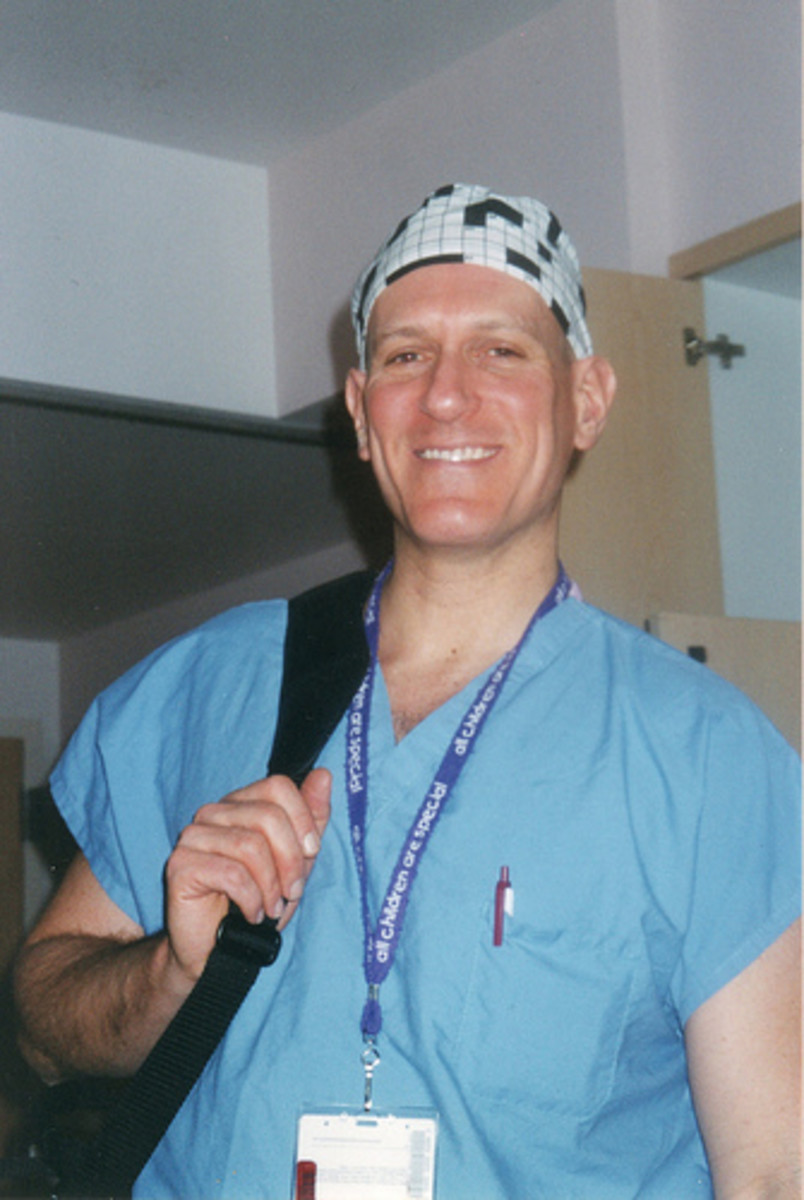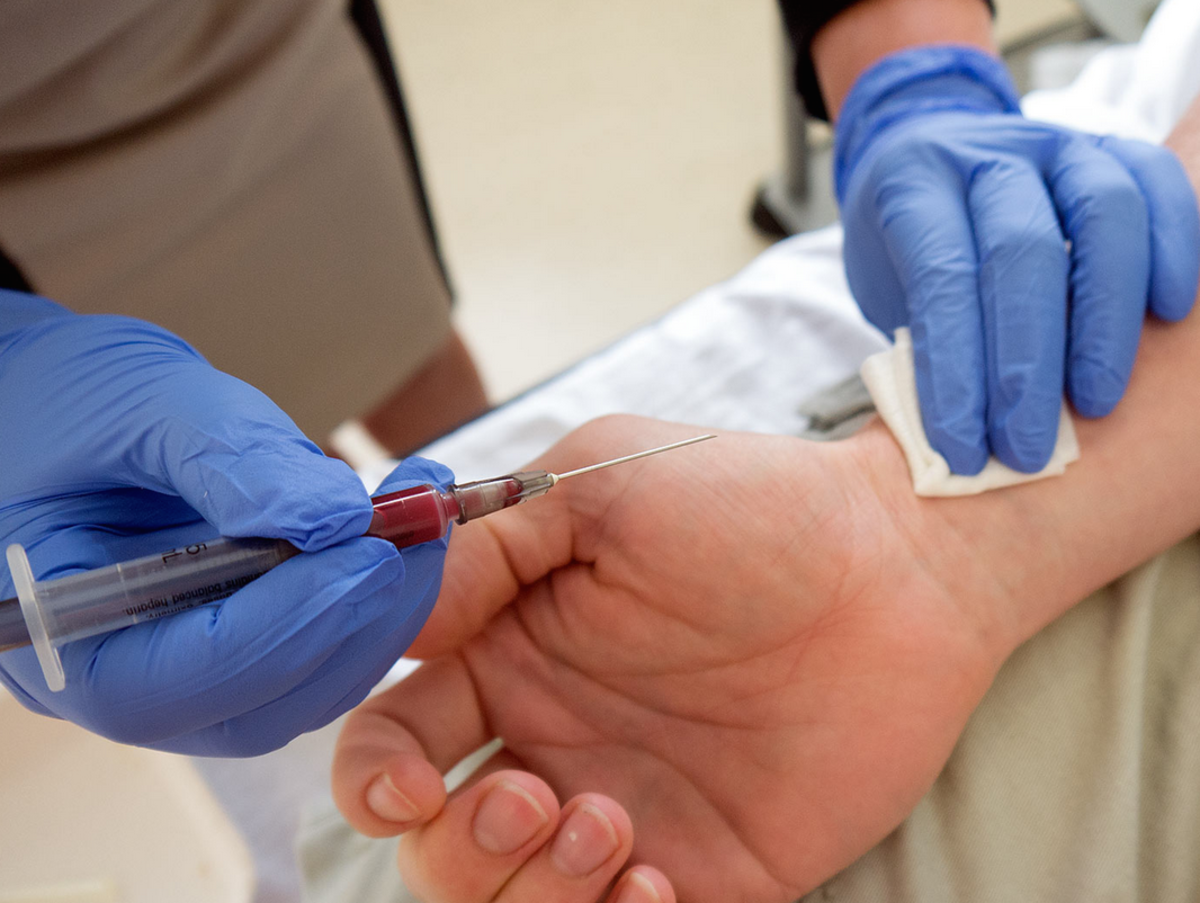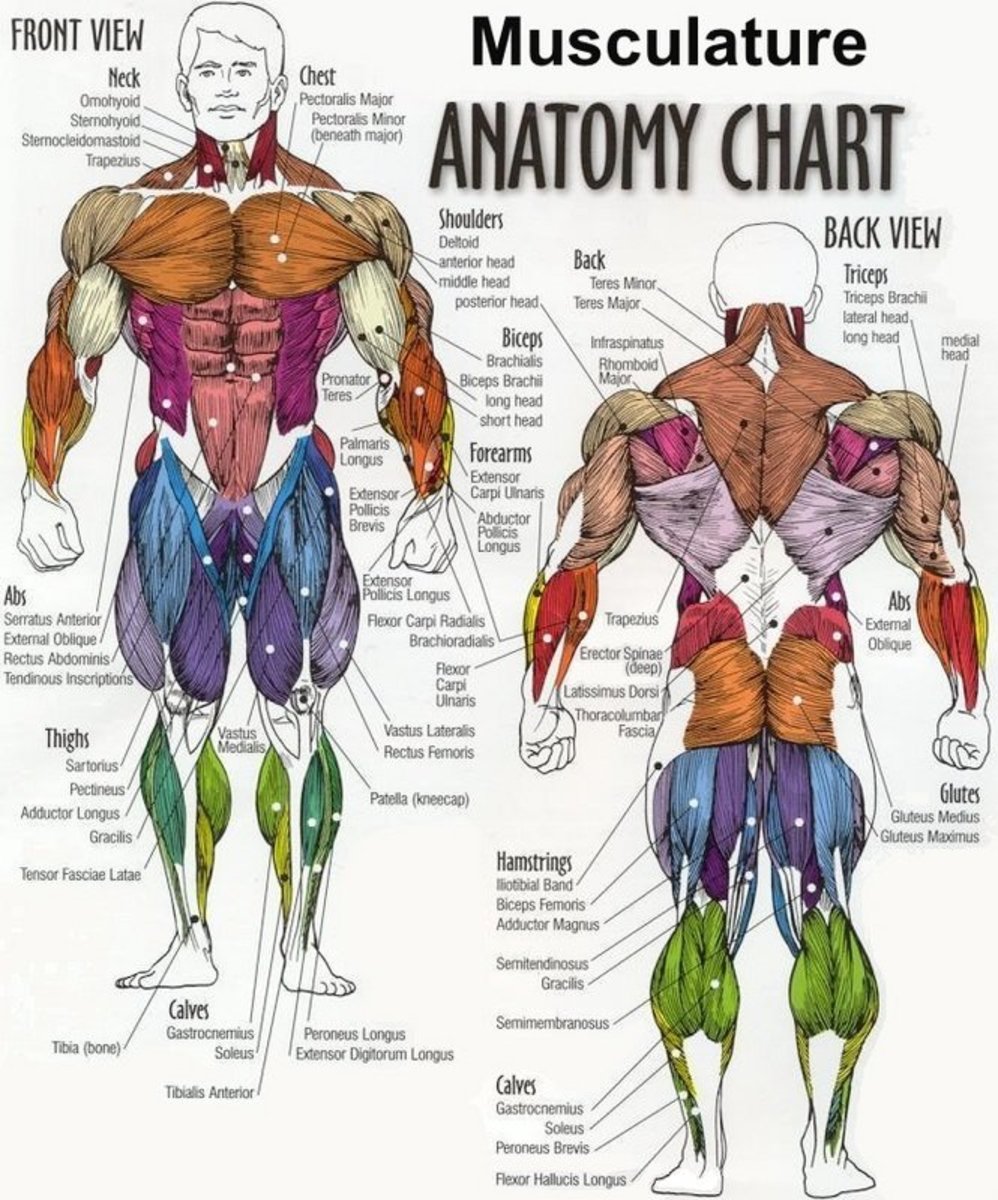Types of doctors in the United States
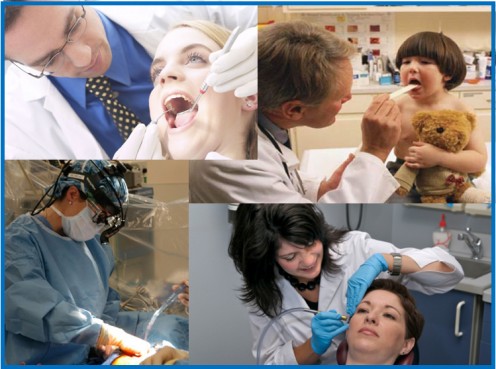
Choosing a career in medicine?
If you are considering medical school, it will be a good idea to educate yourself on the different types of medical doctors that exist, and what exactly each specialized field of medicine entails.
This article addresses the types of medical doctors that exist today, describes each specialized field individually and lists the education requirements for each field.
ANESTHESIOLOGIST
Anesthesiologists are physicians who administer anesthetics during surgery, or during other medical procedures. In layman’s terms, anesthesiologists administer medicines to prevent patients from feeling pain and sensations.
During surgery, anesthesiologists monitor patients very closely, and adjust the anesthetics in accordance with variations in patients’ vital signs.
Many anesthesiologists are specialized in a specific field of anesthesiology (e.g. neurological or respiratory illnesses). Apart from administering drugs during surgery, anesthesiologists also help treat patients with conditions that cause chronic pain.
The job of an anesthesiologist requires years of sophisticated training. They are required to have great bedside manner, and must have the capability to keep patients calm during trying moments.
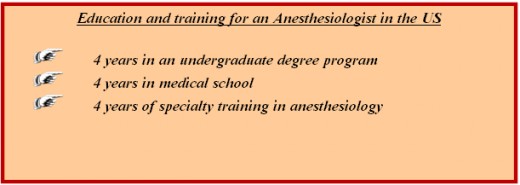
CARDIOLOGIST
Cardiologists are physicians who are certified to treat problems with the heart, arteries and veins. They are experts in the diagnosis and treatment of congenital heart defects, coronary artery disease, heart failure, electrophysiology and valvular heart diseases.
All cardiologists are trained in invasive and non- invasive methods, but will usually specialize in only one type of cardiology
A noninvasive cardiologist usually runs an office- based practice by diagnosing the patients to prevent probable heart disorders. They are usually not involved in the procedures and surgeries. They mainly concentrate on the diagnosis of diseases of the heart.
An invasive cardiologist does all the things a non-invasive cardiologist can do, plus a bit more. Invasive cardiologists are trained in a diagnostic procedure called cardiac catheterization, which is used to find blockages of the arteries.
Cardiologists are not surgeons and hence do not perform surgery; cardio- thoracic surgeons do. However, cardio- thoracic surgeons very often consult with cardiologists for advice before or during surgery.

DENTIST
A dentist is an accredited medical professional who specializes in the care of teeth, gums and mouths.
Dentists are required to have excellent manual dexterity, strong interpersonal skills, comprehensive medical understanding and a keen eye for detail.
The life of a dentist is very similar to that of any other doctor, except that dentists keep regular office hours. For this reason, many aspiring doctors choose the field of dentistry.
The American Dental Association recognized nine dental disciplines:
- Endodontics
- General Dentistry
- Oral & Maxillofacial Pathology
- Oral & Maxillofacial Radiology
- Oral & Maxillofacial Surgery (Oral Surgeon)
- Orthodontics
- Pediatric Dentistry
- Periodontics
- Prosthodontics
- Public Health Dentistry

DERMATOLOGIST
A dermatologist is a medical doctor who is specialized in the diagnoses and treatment of medical conditions that affect skin, hair and nails.
Dermatologists receive specialized training in the following areas:
- Diagnosis and treatment of skin manifestations of systemic and infectious diseases
- Diagnosis and treatment of melanomas, moles, skin cancers and other skin tumors
- Management of contact dermatitis and other inflammatory skin disorders
- Surgical techniques used in dermatology
Many dermatologists offer cosmetic procedures that help to maintain a youthful appearance e.g. botox, collagen injections, liposuction, eyelid surgery, dermal fillers and laser resurfacing.
There are subspecialties within the medical field of dermatology, e.g. cosmetic dermatology, pediatric dermatology, dermatopathology, Mohs Surgery, immunodermatology and teledermatology.
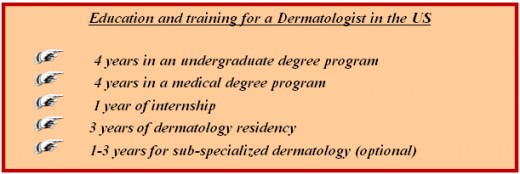
ENDOCRINOLOGIST
Endocrinologists are medical doctors who diagnose diseases that affect glands. They know how to treat conditions that are often complex and involve many systems within the body.
Endocrinologists are trained to diagnose and treat hormone imbalances and problems by helping to restore the normal balance of hormones in the human system. They take care of many conditions including:
- cancers of the endocrine glands
- cholesterol (lipid) disorders
- diabetes
- hypertension
- infertility
- lack of growth (short stature)
- menopause
- metabolic disorders
- osteoporosis
- over or under production of hormones
- thyroid diseases
The job of an endocrinologist is not limited to diagnosing and treating endocrine- related problems -endocrinologists also conduct basic research to learn the way glands work, and clinical research to learn the best methods to treat patients with a hormone imbalance. Through research, endocrinologists develop new drugs and treatments for hormone problems.
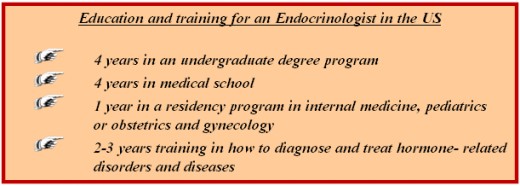
GASTROENTEROLOGIST
A gastroenterologist is a physician who specializes in the diagnosis and treatment of disorders of the gastrointestinal tract, including the esophagus, stomach, small intestine, large intestine, pancreas, liver, gallbladder, and biliary system. More specifically, the gastroenterologist will have expert knowledge about the movement of material through the stomach and intestine (motility), the digestion and absorption of nutrients into the body, removal of waste from the system, and the function of the liver as a digestive organ.
Gastroenterology involves a detailed understanding of common and important conditions such as colon polyps and cancer, hepatitis, gastroesophageal reflux (heartburn), peptic ulcer disease, colitis, gallbladder and biliary tract disease, nutritional problems, Irritable Bowel Syndrome (IBS), and pancreatitis.
Some Gastroenterologists receive directed training in advanced procedures using endoscopes such as endoscopic biliary examination (endoscopic retrograde cholangiopancreatography or ERCP), removal of tumors without surgery (endoscopic mucosal resection or EMR), placement of internal drainage tubes (stents) and endoscopic ultrasound (EUS).
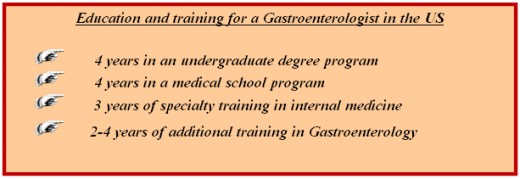
NEPHROLOGIST
A nephrologist is a physician who has been educated and trained in kidney diseases, kidney transplantation, and dialysis therapy.
Patients see nephrologists for:
- Bladder diseases
- Electrolyte disorders of acid/base imbalance
- Hematuria (blood loss in the urine)
- Hypertension
- Kidney disease
- Kidney stones
- Prostate diseases
- Proteinuria (loss of protein especially albumin in the urine)
- Renal failure
- Urinary tract infections
Subspecialties in nephrology include:
- Dialysis - Dialysis nephrologists manage dialysis treatment.
- Interventional nephrology - These doctors focus on access placement and maintenance.
- Pediatric nephrology - Only doctors trained in pediatrics are allowed to specialize in pediatric nephrology. Pediatric nephrology deals with kidney problems in growing children.
- Transplant nephrology - Transplant nephrologists monitor the transplant process and immunosuppression. Surgery is usually performed by transplant surgeons or urologists and follow up care is the nephrologist's job.
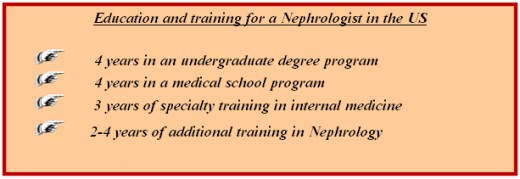
NEUROLOGIST
Neurologists may specialize the following subspecialty areas of Neurology: stroke, epilepsy, neuromuscular disease, and movement disorders.
A neurologist is a medical doctor with specialized training in diagnosing, treating, and managing disorders of the brain and nervous system.
Neurologists treat patients with the following disorders:
- Alzheimer's disease
- Amyotrophic lateral sclerosis (ALS, also called Lou Gehrig's disease)
- Brain and spinal cord injuries
- Brain tumors
- Epilepsy
- Headache
- Multiple Sclerosis
- Pain
- Stroke
- Parkinson's disease
- Tremor
Neurologists can recommend surgical treatment, but they do not perform surgery. When treatment includes surgery, neurologists may monitor and supervise patients throughout their treatment. Neurosurgeons are medical doctors who specialize in performing surgical treatments of the brain or nervous system.
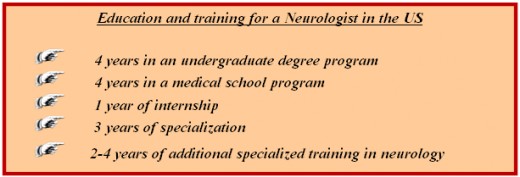
OBSTETRICIAN/GYNECOLOGIST (OB/GYN)
An obstetrician/gynecologist is a physician specialist who provides medical and surgical care to women. An OB/GYN has particular expertise in pregnancy, childbirth, and disorders of the reproductive system. This includes preventative care, prenatal care, detection of sexually transmitted diseases, Pap test screening, and family planning.
OB/GYNs have a broad base knowledge of obstetrics and gynecology and may choose to specialize in the following areas:
- Acute and chronic medical conditions
- Adolescent gynecology
- Behavioral problems
- Cancer
- Endocrinology
- Health maintenance during pregnancy
- Infertility
- Operative gynecology
- Pregnancy and delivery
- Preventative health
- Urinary tract disorders
There are four recognized subspecialties in the field of obstetrics/gynecology: gynecologic oncology, maternal/fetal medicine, reproductive endocrinology and infertility, and urogynecology/reconstructive pelvic surgery.

ONCOLOGIST
An oncologist is a doctor who is qualified in the treatment of canceer. Oncologists are fully trained in the various types of cancer and the best treatment for each. They know which tests must be conducted in order to make accurate diagnoses, and thus are able to advise the best treatment for each type of cancer.
Oncologists must be fully aware of all new research and findings in the field of cancer, since the ongoing research of causes and treatments of cancer yields frequent publishing of new information.
Oncologists often develop an interest and expertise in the management of particular types of cancer. There are several sub-specialties within oncology.
- Gynecologic oncology: focuses on cancers of the female reproductive system.
- Interventional oncology :inerventional radiologists who specialize in minimally invasive image guided tumor therapies.
- Medical oncology: treatment primarily with drugs, e.g. chemotherapy
- Pediatric oncology: concerned with the diagnosis and treatment of cancer in children
- Radiation oncology: treatment primarily with radiation, a process called radiotherapy
- Surgical oncology: surgeons who specialize in tumor removal.

OPTOMETRIST
An optometrist is not classified as a medical doctor, but as a doctor of optometry (O.D.). The optometrist is licensed to conduct eye exams, prescribe corrective contact lenses and glasses, and diagnose and treat eye disease. Optometrists work through various vision therapies to treat abnormalities, and can prescribe drugs for the eyes. If surgery is required an ophthalmologist (M.D.) is recommended.
Optometrists and optometry-related organizations interact with governmental agencies, other health care professionals, and the community to deliver eye and vision care. Optometrists are one of three eye care professionals, the others being ophthalmologists (medical doctors), and opticians.

PEDIATRICIAN
A pediatrician is a child's physician who provides preventive health maintenance for healthy children and medical care for children who are acutely or chronically ill.
Irrespective of the patients’ state of health, pediatricians manage their physical, mental, and emotional well-being in every stage of their development.
Generally, pediatricians focus on babies, children, adolescents, and young adults from birth to age 21 years to:
- control infectious disease
- ease the difficulties of children and adolescents with chronic conditions
- foster healthy lifestyles
- reduce infant and child mortality
Pediatrics is a collaborative specialty -- pediatricians work with other medical specialists and healthcare professionals to provide for the health and emotional needs of children.

PODIATRIST
Podiatrists (sometimes call foot doctors) are medical doctors who have completed medical school specific to podiatry and a two-year residency. To understand the foot, podiatrists must receive training in biomechanics, radiography, sports medicine, pharmacology, dermatology, orthopedics, and surgery.
A podiatrist can treat any of the following conditions: corns; calluses; ingrown toenails; bunions; deformities; discoloration on the feet; flattened arches; changed moles; swelling in both feet; numbness; tingling and burning of feet; severe foot pain and foot complaints associated with diabetes and other diseases.

PSYCHIATRIST
A psychiatrist is a physician who specializes in the prevention, diagnosis, and treatment of mental, addictive, and emotional disorders, such as the following:
- Anxiety
- Depression
- Developmental disabilities
- Psychosis
- Substance abuse
- Sexual dysfunction
They order diagnostic tests, prescribe medications, practice psychotherapy, and help patients and their families cope with stress and crises. Psychiatrists often consult with primary care physicians and psychotherapists, such as psychologists and social workers.
The field of psychiatry itself can be divided into various subspecialties. These include:
- Addiction psychiatry
- Adult psychiatry
- Child and adolescent psychiatry
- Consultation-liaison psychiatry
- Cross-cultural psychiatry
- Emergency psychiatry
- Forensic psychiatry
- Learning disability
- Neurodevelopmental disabilities
- Neuropsychiatry
- Psychosomatic medicine

RHEUMATOLOGIST
A rheumatologist is a physician who is qualified by additional training and experience in the diagnosis and treatment of arthritis and other diseases of the joints, muscles and bones.
Rheumatologists treat arthritis, certain autoimmune diseases, musculoskeletal pain disorders, osteoarthritis, gout, lupus, back pain, osteoporosis, fibromyalgia and tendinitis. Some of these are very serious diseases that can be difficult to diagnose and treat.
Typically, rheumatologists work with other physicians, sometimes acting as a consultant to advise them about a specific diagnosis and treatment plan



